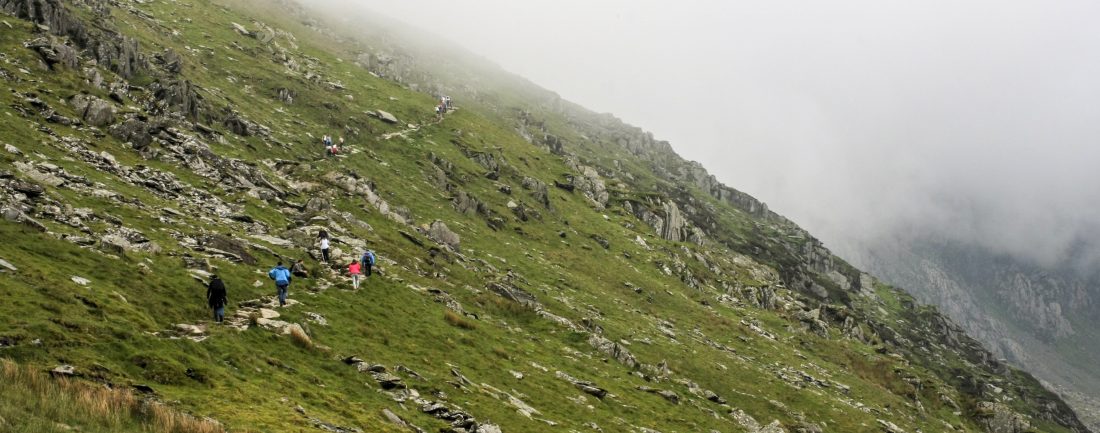Last June I started in a new library director role. I’ve not shared any reflective writing recently due to various reasons, but as the end of the calendar year coincided with my first six months in this new role I thought I would do so.
I’ve recently changed how I approach reflective thought and its relationship with practice. In a previous #critlib chat on critical reflection I said that I try to build in reflection in focused bursts as and when I can do it; In my new role this is no longer exactly true. What I have started doing is to use my cycle commute as protected time to think about the issues of the day, using a Stoic approach to reflective self-aware focus and questioning.
The basic idea of this type of Stoic ‘inner work’ is to dissect and get to the bottom of why I am thinking about an issue in a particular way, and to overcome resistance. I rarely find this process leads to straightforward answers or light-bulb moments—rather it leads me to forming and shaping better critical questions about problems. These guide enquiry in a structured way, and provide space to dispassionately work through understanding others’ thoughts and feelings on shared challenges.
Starting in a new role
What a week working in journalism will do to you.https://t.co/xePlCK0gEz pic.twitter.com/lp9hWa0OoR
— Mikey Smith (@mikeysmith) May 10, 2017
Coincidentally, Jessica Olin started a new role at almost exactly the same time as me and in Letter From a New Job describes many of the feelings that come with a new administration role, especially the need to pace oneself. I rate Jessica’s writing on leadership and used the same book, Michael Watkins’s The first 90 days, when transitioning into my current role. I’ve recommended it to others several times since re-reading it.
A priority for me on starting was to meet everyone in the library, a solid piece of advice from my professional mentor some years ago which is repeated in Watkins’s book. Doing this alongside initial meetings with heads of department and other senior staff, involvement in various university committees, understanding and absorbing institutional culture and process, and training and other induction activities means this is not speedy.
Meeting everyone helps develop early understanding of the expectations and wishes of the team, and allowed me to ask directly what they think I should focus on. It’s also an opportunity to ensure everyone has heard a few key messages unfiltered from me as the new director, such as my perspectives on educational and library practice and labour. By this I don’t mean bringing the bells hooks and Pierre Bourdieu citations to the first meeting with a new colleague, tempting as this might be; rather I mean that where you place emphasis and and how you link personal standards and professional ethics to the work helps in building credibility.
Additionally I am line-managing a new team in my direct reports, who with me comprise the library senior management team. Inheriting an established team that already is performing well provided a wonderful opportunity to thoughtfully consider approaches to existing processes and our decision-making, and design some ‘norms’ for team-working with input from everyone. On a surface level I’ve found these conversations help align expectations about how team members prefer to work, but more deeply they have helped my understanding of the interplay of social structure and human agency (informed here by Anthony Giddens’s theory of structuration) in the social life of the leadership team.
I’ve found it important to be clear and explicit in how I value or weight different aspects of colleagues’ work as managers and leaders. For example, we can consciously place importance on emotional labour in line-management and peer relationships, acknowledging and recognizing it as core to the role and rewarding it as such. We can pay mindful attention to difference in how colleagues work when confronted with uncertainty and other stressors, and how different approaches to making meaning can be combined to provide more insightful pictures than the view of a few individuals.
In working with the additional ambiguity and uncertainty a more senior role brings, I will share some excellent advice from a previous line manager about the need to quickly and accurately discern the “signal from the noise” in strategic situations. Reading Daniel Kahneman’s Thinking, fast and slow I understand this idea as an expression of skill that must be developed in senior roles:
The acquisition of skills requires a regular environment, and adequate opportunity to practice, and rapid and unequivocal feedback about the correctness of thoughts and actions. When these conditions are fulfilled, skill eventually develops, and the intuitive judgments and choices that quickly come to mind will mostly be accurate. […] A marker of skilled performance is the ability to deal with vast amounts of information swiftly and efficiently. (Kahneman, 2012. p. 416)
Reflectively though, I would add to this a need to understand what is “noise” is always subjective and relative, perhaps personal, and certainly can be contested. Daniel Kahneman’s work is replete with insight into the psychology of judgment and cognitive bias, and I read it after completing workplace unconscious bias training run for us by an Equality Challenge Unit trainer which cemented that learning. It is one of just a few books I would recommend all higher education workers to read (another is bell hooks’s Teaching to transgress).
A note on the performative in management
I wrote a little about performativity in management in Professional identity, impostor syndrome, and performativity:
Management is fundamentally performative: expressing power by a mode of authoritative speech, a case of actions embodied in “Doing things with words” (Learmonth, 2005).
Since starting in my current role have thought a lot about the relationship between performative speech and power in management roles and leadership situations. The concept of ‘performativity’ used here goes back to J.L. Austin’s notion of performative utterances (or performatives), but importantly for our purposes Jean-François Lyotard’s understanding of the role of performativity in governing the legitimation of knowledge in postmodernity and the implications this has when inspecting power structures and relationships.
In management and leadership, this legitimating role can both aid the creation and development of shared or common understandings, and also in my view is central to how managers exercise power in speech-acts. The view that “words are deeds” runs contrary to the tendency to privilege action as something concrete, practical, and more authentically meaningful than words are, particularly when there is a clear need for transformative action such as political activism. I feel though this is a false comparison, as in management roles and leadership situations there are many highly practical choices made where we act to translate words as deeds. For example, what and who we focus attention on, centre, and prioritize; how we explain our views and beliefs; as well as how we employ words to build support for and set in motion actions.
In my view a key task for managers is balancing the pragmatic such as compromise and coalition-building, with the need to retain—and be seen to retain—an authentic position which is congruent with one’s values. It may be tempting to think of words as tools to create messages for different audiences, only loosely connected with those values. On considering the use of words as performatives I will end on a cautionary insight I have found particularly valuable from Sara Ahmed’s analysis of how words are employed by diversity workers in higher education, from On being included:
A political question becomes the extent to which we can separate ourselves from the words we use. […] If we do things with words, then words can also do things to us. We don’t always know what they will do. (Ahmed, 2012. p.75)
References
Austin, J.L. (1975) How to do things with words. 2nd edn. Reprint, Oxford: Oxford University, 2011.
Ahmed, S. (2012) On being included. Durham, NC: Duke University.
Giddens, A. (1984) The constitution of society. Cambridge: Polity.
hooks, b. (1994) Teaching to transgress. London: Routledge.
Kahneman, D. (2012) Thinking, fast and slow. London: Penguin.
Learmonth, M. (2005) ‘Doing things with words: the case of “management” and “administration”’, Public Administration 83(3), pp. 617–637. doi:10.1111/j.0033-3298.2005.00465.x
Lyotard, J.F. (1984) The postmodern condition. Manchester: Manchester University.
Watkins, M.D. (2003) The first 90 days. Boston, MA: Harvard Business School.


